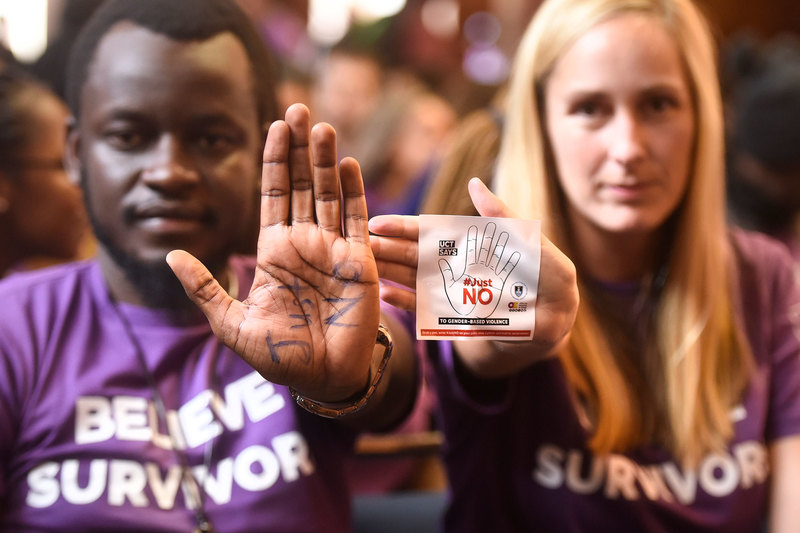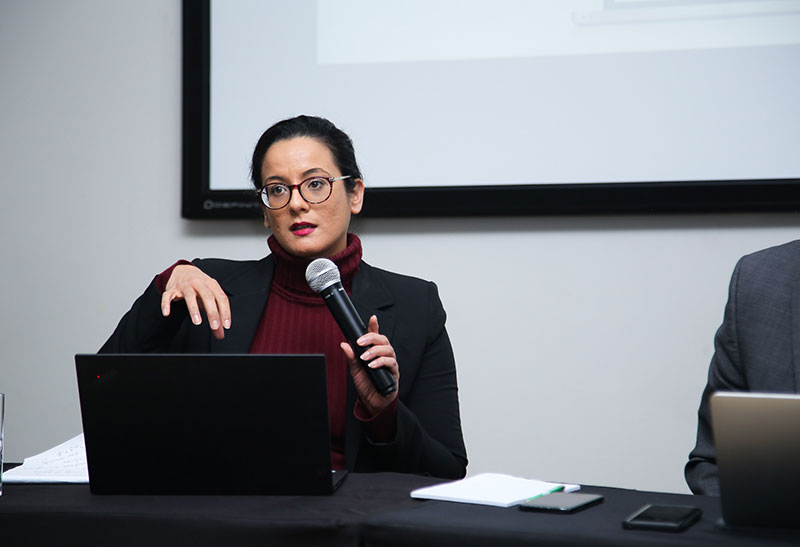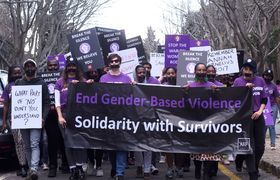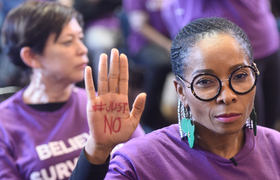UCT strengthens SGBV survivor support
23 November 2020 | Story Carla Bernardo. Read time 5 min.
The University of Cape Town’s (UCT) Office for Inclusivity & Change (OIC) has joined forces with Rape Crisis, an organisation that has worked in the area of adult rape and sexual violence since 1976, to strengthen the support services to survivors of sexual offences.
The OIC reports directly to Deputy Vice-Chancellor for Transformation Professor Loretta Feris. The OIC provides institutional responses to transformation, disability, cultural change for staff and students, and sexual and gender-based violence (SGBV).
“The OIC has a small staff with a massive task, and this requires thinking out of the box to effect change. The partnership with Rape Crisis is therefore a strategic intervention designed to maximise the capacity of the OIC in its survivor support,” said Professor Feris.
“It enhances both the skills and capacity of the OIC’s existing survivor support service.”
OIC director, Dr Sianne Alves, said that when the office was formed in 2018, she was “conscious of the UCT survivor recommendations for change, which was really important to honour”.
“We wanted to ensure that survivor support was providing a service that was authentic and professional. In consultation with Rape Crisis, we worked collaboratively to invoke changes in the operations of the OIC and to further capacitate the OIC with skills in counselling, trauma support and containment.”

Dr Alves added that survivor support was further strengthened by the Ad Hoc Tribunal on Sexual Misconduct, set under the auspices of the DVC Transformation and led by UCT’s legal counsellor Anne Isaac and her team. Through these revised services, survivors now benefit from a seamless debriefing and counselling support service from the moment of reporting through to the tribunal process or informal process.
“Also, where the case is proceeding externally, supportive networks with the South African Police Service, established with the OIC, have benefited survivors in taking up their cases in the criminal justice system,” said Alves.
Additional staff support
The collaboration between the OIC and Rape Crisis has also seen the appointment of survivor support case officer and counsellor, Yumna Seadat.
She joins UCT and the OIC with a wealth of experience in counselling and providing support to survivors of sexual offences and to those who support them.
She was drawn to her line of work because of trauma she had faced during her childhood and adolescence. With the help of school counsellors and psychologists, Seadat began building the necessary skills to handle stressful situations and soon found her calling by helping others during their most vulnerable moments.

After graduating from the University of the Witwatersrand with a BA Honours in Psychology, Seadat undertook her counselling internship in Cape Town. She has since served in numerous capacities at organisations such as the South African Police Service’s victim empowerment service, at the Western Cape government’s Stikland Hospital, LifeLine and Rape Crisis.
Her work in these organisations has included telephonic, online and in-person counselling; course facilitation and design; individual and group counselling; and support for rape survivors, including throughout the criminal justice process.
Seadat chose UCT because of the university’s focus on fighting and responding to SGBV. She said that the position of survivor support case officer and counsellor is indicative of the university’s support for survivors and will allay survivors’ fear of not being believed.
“The benefit of the SSG is that survivors can form broader connections with peers with similar experiences and will therefore feel less isolated.”
Among her work milestones so far has been collaborating with the university’s Ad Hoc Tribunal on Sexual Misconduct. Seadat keeps survivors informed and supported throughout the process, including during the investigation process and verdict.
She is also working alongside UCT’s Student Wellness Service (SWS) to ensure a smooth transition and handover of survivors, should they be referred to the SWS. This ensures that survivors do not feel that they are going through three separate processes, including the ad hoc tribunal.
Another way Seadat is using her experience to the benefit of UCT students and staff is through the OIC’s recently launched online Survivor Support Group (SSG), which meets once a week via Microsoft Teams.
The benefit of the SSG is that survivors can form broader connections with peers with similar experiences and will therefore feel less isolated. As peers, they begin to learn from one another about coping skills – verbalising trauma and knowing how to self-monitor in case they need to reach out for psychological support.
 This work is licensed under a Creative Commons Attribution-NoDerivatives 4.0 International License.
This work is licensed under a Creative Commons Attribution-NoDerivatives 4.0 International License.
Please view the republishing articles page for more information.
Related










